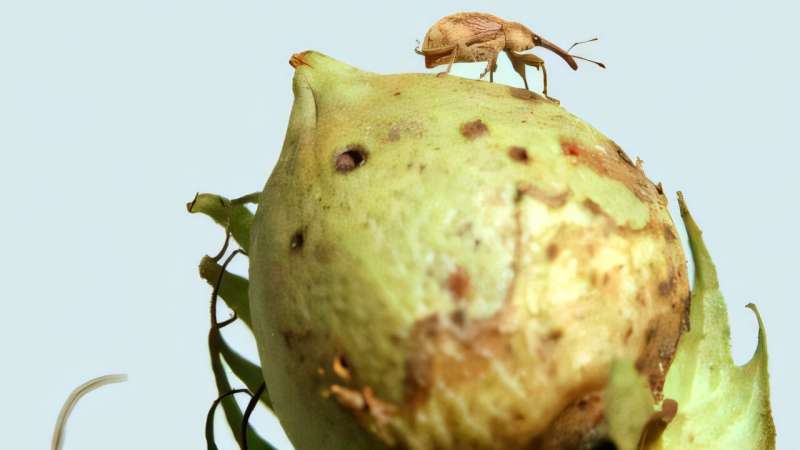
Researchers have developed a groundbreaking approach to pest control in agriculture through gene editing. A team led by scientists from the Brazilian Agricultural Research Corporation (EMBRAPA) and the Genomics for Climate Change Research Center (GCCRC) has demonstrated how gene editing can enhance the production of alpha-amylase inhibitors in plants, making them indigestible to pests. This advancement can significantly improve crop resilience against insect threats that target essential crops such as corn, peas, and beans.
Historically, many crops have lost their natural defenses against pests due to domestication practices aimed at increasing yield and digestibility. As a result, these plants have become susceptible to various insects that thrive on starch-rich foods. According to the research published on November 12, 2025, in the Biotechnology Journal, the team highlighted that leveraging gene editing techniques, particularly CRISPR, offers a viable path to restoring these natural defenses without compromising human or livestock digestion.
Innovations in Pest Resistance
The team’s research points out that in the early 2000s, significant strides were made in identifying genes responsible for producing alpha-amylase inhibitors across various plant species. These inhibitors act as a barrier against pests like bedbugs and weevils, which convert starch into sugars, enabling them to thrive on crops. Marcos Fernando Basso, a researcher at GCCRC and the article’s lead author, noted the importance of ensuring these advancements cater to agricultural needs without negatively impacting non-target organisms.
Traditional transgenic methods, which involve integrating foreign genes into plant genomes, pose challenges related to market acceptance and regulatory hurdles. New genetically modified organisms (GMOs) often face skepticism from consumers and costly approval processes. This is where gene editing diverges. By modifying a plant’s own genes, researchers can create varieties that may not be classified as transgenic under regulations set by the National Technical Commission on Biosafety (CTNBio). This could facilitate broader acceptance and commercialization of these innovative crops.
Future Prospects and Market Implications
The potential for utilizing gene editing to increase the production of alpha-amylase inhibitors is significant. These inhibitors have shown effectiveness against a range of pest species, including the boll weevil and the coffee berry borer, which are notorious for damaging cotton and coffee crops, respectively. The ability to enhance these defenses while ensuring safety for human consumption paves the way for more resilient agricultural practices.
Basso emphasized the promise that CRISPR technology holds for the future of agriculture: “Gene editing using CRISPR allows for precise modifications to enhance the activity of these inhibitors, making plants more resilient to pests without posing risks to humans or animals.” This research signifies a pivotal shift in pest management strategies, aiming to protect not only crop yields but also food quality.
As the agricultural sector faces increasing challenges from pest infestations and changing climate conditions, innovations such as these could play an essential role in ensuring food security. The responsible application of gene editing techniques could lead to a new era of crops designed to withstand pest pressures, benefitting both producers and consumers alike.
This groundbreaking research underscores the importance of integrating advanced biotechnological methods into agricultural practices, highlighting the potential for improved sustainability and productivity in food production systems.






